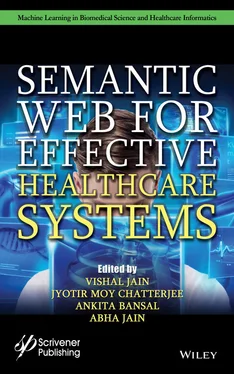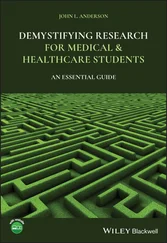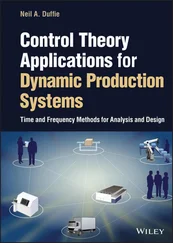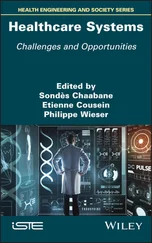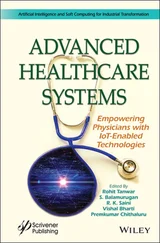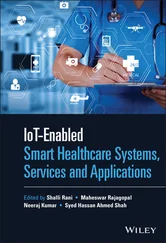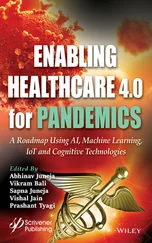Social media text analytics can be used in “brand experience” research. It gives the experience and strategy for building the long term customer-brand relationship. Text analytics research found that applying content analysis to user-generated content provides a rich opportunity to study users’ style of writing, patterns, or preferences. Content analysis research helps all other data analysts to change their research direction to social media text analytics. The reports from different healthcare service providers recommended that the hospital status and the service quality are the two important factors that go hand-in-hand. They also reported that the hospitals have to be keen on their online reputation so as to manage the trust and relationship with their clients or patients. The chapter focused on identifying the features from the users’ reviews, ranked them using multi-criteria decision making techniques, and identified the areas for improvement in specific aspects of healthcare services and its operations. This work can be extended to time-series based sentiment analysis for the features extract which would be much helpful for predicting the profit of a product or Organization and the customer satisfaction. Sarcasm in the review documents and classification of fake reviews would give further improvement in this text analytics.
This work can be improved with complete automation in building the domain Ontology, and exploring various methods for visualizing the results, which enables the users to get more information. In this study, individuals, siblings, and concepts are the only items considered for Ontology learning. It can be further extended and modeled as “sentiment domain dictionary” with the set of positive and negative words.
However, the work can be extended to map relationship between concepts, in addition to the existing terms. It can be done by the development of multi-agent system for integration of different domain Ontology using their properties. This in turn helps to develop expert systems solution or decision support system for any decision-making problem.
1. Somprasertsri, G. and Lalitrojwong, P., Mining feature-opinion in online customer reviews for opinion summarization. J. Universal Comput. Sci ., 16, 6, 938–955, 2010.
2. Yang, J.Y., Kim, H.J., Lee, S.G., Feature-based product review summarization utilizing user score. J. Inf. Sci. Eng ., 26, 6, 1973–1990, 2010.
3. Jacobsen, J.S. and Munar, A.M., Motivations for sharing tourism experiences through social media. Tourism Management , 43, 46–54, 2014.
4. Olga, L.P. and Raj, R., Evolution of social media and consumer behaviour changes in tourism destination promotion. Int. J. Bus. Globalisation , 12, 3, 358–368, 2014.
5. Varanasi, P. and Tanniru, M., Seeking intelligence from Patient experience using text mining: analysis of emergency data. Inf. Syst. Manage ., 32, 3, 220– 228, 2015.
6. Ittoo, A., Nguyen, L.M., Bosch, A., Text analytics in industry: Challenges, desiderata and trends. Comput. Ind ., 78, 96–107, 2016.
7. Nedellec, C. and Nazarenko, A., Ontology and information extraction: A necessary symbiosis, in: Ontology Learning from Text: Methods, Evaluation and Applications , P. Buitelaar, P. Cimiano, B. Magnini (Eds.), pp. 3–14, IOS Press Publications, Amsterdam, The Netherlands, 2005.
8. Maedche, A., Pekar, V., Staab, S., Ontology learning part one—on discovering taxonomic relations from the web , N. Zhong (Ed.), pp. 301–320, Web Intelligence, Springer, Berlin Heidelberg, 2003.
9. Rindflesch, T.C., Tanabe, L., Weinstein, J.N., Hunter, L., EDGAR: Extraction of Drugs, Genes and Relations from the Biomedical Literature, in: Proceedings of Pacific Symposium on Biocomputing , Singapore, pp. 517–528, NIH Public Access, 2000.
10. Chen, M., Ebert, D., Hagen, H., Data, information, and knowledge in visualization. J. IEEE Comput. Graphics Appl ., 29, 1, 12–19, 2009.
11. Guo, H., Zhu, H., Guo, Z., Su, Z., Product feature categorization with multilevel latent semantic association, in: Proceedings of the Eighteenth ACM Conference on Information and Knowledge Management CIKM ‘09 , Association for Computing Machinery, New York, NY, USA, pp. 1087–1096, 2009.
12. Blei, D.M. and Lafferty, J.D., A coorelated topic model of science. Ann. Appl. Stat ., 1, 1, 17–35, 2007.
13. Colace, F., Santo, M.D., Greco, L., Moscato, V., Picariello, A., Probabilistic approaches for sentiment analysis: Latent dirichlet allocation for ontology building and sentiment extraction, in: Studies in Computational Intelligence: Sentiment Analysis and Ontology Engineering , W. Pedrycz and S.-M. Chen (Eds.), vol. 639, pp. 75–91, Springer, Switzerland, 2016.
14. Maynard, D., Bontcheva, K., Cunninham, H., Towards a semantic extraction of named entities. Recent Adv. Nat. Lang. Process ., Bulgaria, Vol. 1, pp. 257– 263, 2003.
15. Castells, P., Fernández, M., Vallet, D., An adaptation of the vector-space model for ontology-based information retrieval. IEEE Trans. Knowl. Eng ., 19, 2, 261–271, 2007.
16. Freitas, L.A. and Vieira, R., Ontology based feature level opinion mining for Portuguese reviews. WWW’13 Companion Proceedings of the 22nd International Conference on World Wide Web , Rio de Janeiro, Brazil, pp. 367– 370, 2013.
17. Ciravegna, F., Dingli, A., Petrelli, D., Wilks, Y., User-system cooperation in document annotation based on information extraction’, International Conference on Knowledge Engineering and Knowledge Management: Ontologies and the Semantic Web EKAW02. Lecture Notes in Computer Series LNCS , vol. 2473, pp. 122–137, 2002.
18. Alani, H., Kim, S., Millard, D.E., Weal, M.J., Hall, W., Lewis, P.H., Shadbolt, N.R., Automatic ontology-based knowledge extraction from web documents. IEEE Intell. Syst ., 18, 1, 14–21, 2003.
19. Popov, B., Kiryakov, A., Ognyanoff, D., KIM – A semantic platform for information extraction. J. Nat. Lang. Eng ., 10, 3–4, 375–392, 2004.
20. Kamps, J., Marx, M., Mokken, R.J., Rijke, M.D., Using wordnet to measure semantic orientation of adjectives. Proceedings of 4th International Conference on Language Resources and Evaluation , Lisbon, Portugal, pp. 1115–1118, 2004.
21. Taboada, M., Brooke, J., Tofiloski, M., Voll, K., Stede, M., Lexicon-based methods for sentiment analysis, in: Computational linguistics , vol. 37, 2, P. Merlo (Ed.), pp. 267–307, MIT Press, Cambridge, USA, 2011.
22. Penalver-Martinez, I., Garcia-Sanchez, F., Valencia-Garcia, R., Feature-based opinion mining through ontologies. Expert Syst. Appl ., 41, 13, 5995–6008, 2014.
23. Verma, S. and Bhattacharyya, P., Incorporating semantic knowledge for sentiment analysis’, proceedings of ICON-2008. 6th International Conference on Natural Language Processing , 2008, Macmillan Publishers, India. Available from: [20-Oct-2014].
24. Lu, Y., Duan, H., Wang, H., Zhai, C.X., Exploiting structured ontology to organize scattered online opinions. proceedings of the Twenty Third International Conference on Computational Linguistics , Beijing, pp. 734–742, 2010.
25. Wei, W. and Gulla, J.A., Sentiment learning on product reviews via sentiment ontology tree. proceedings of the 48th Annual Meeting of the Association for Computational Linguistics ACL 10 , Uppsala, Sweden, pp. 404–413, 2010.
26. Ma, J., Xu, W., Sun, Y., Turban, E., Wang, S., Liu, O., An ontology-based text-mining method to cluster proposals for research project selection. IEEE Trans. Syst. Man Cybern. Part A Syst. Humans , 42, 3, 784–790, 2012.
Читать дальше
